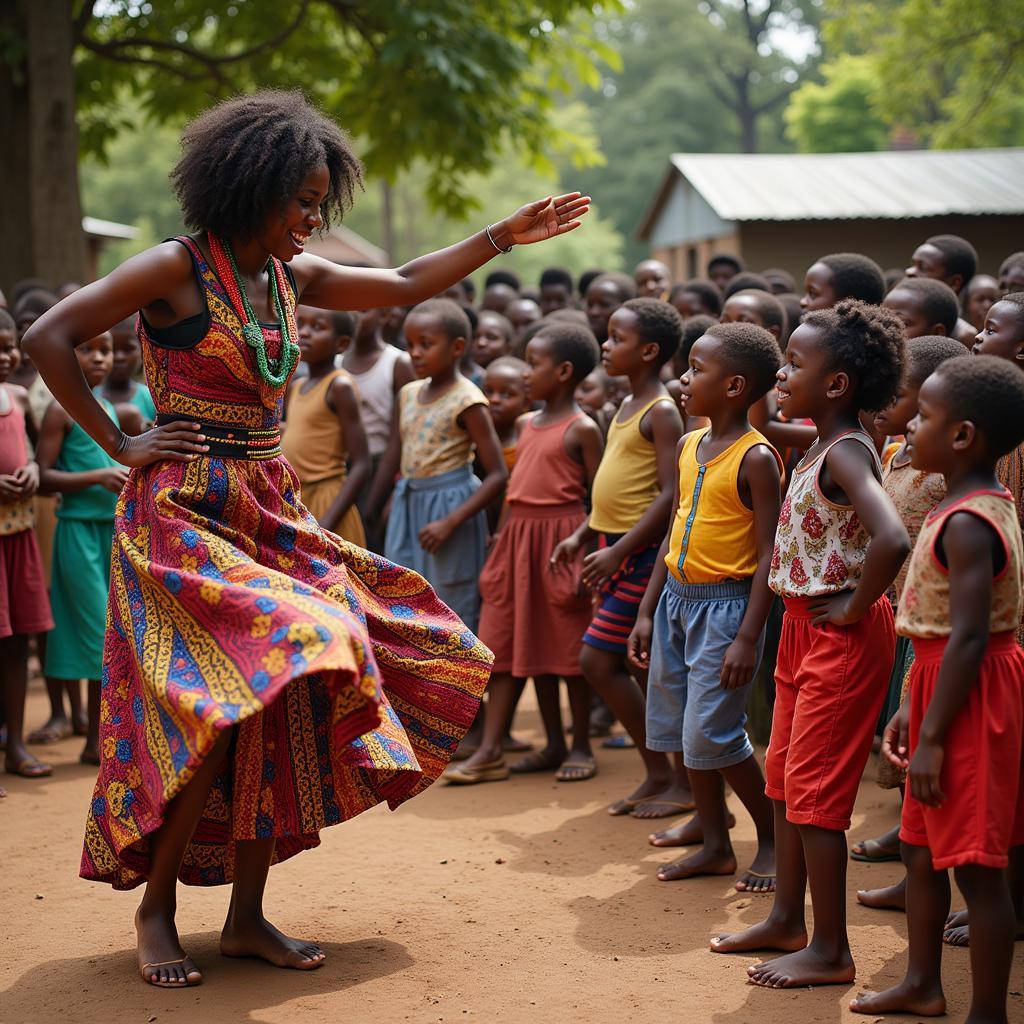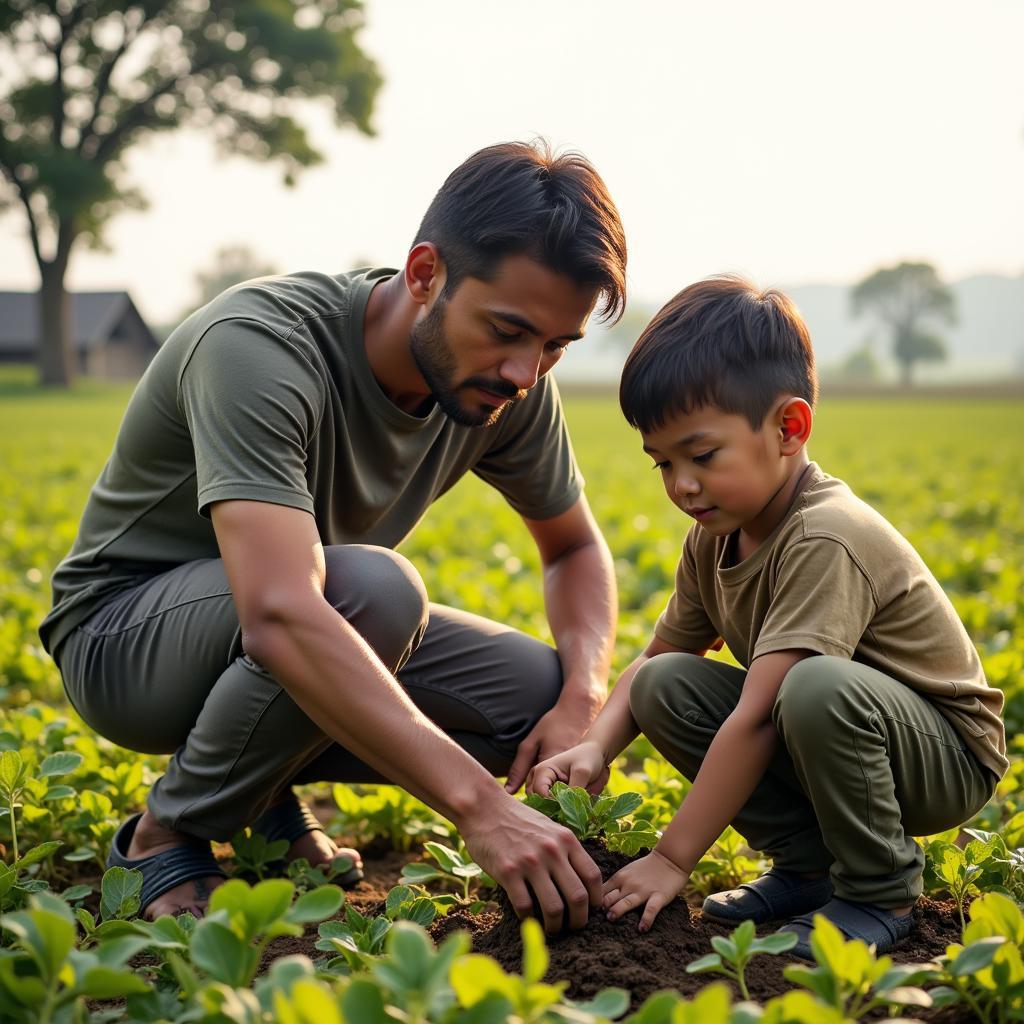Exploring the Vibrant World of African Cultural Dance for Kids
African cultural dance pulsates with life, rhythm, and stories passed down through generations. Far more than just entertainment, these dances are woven into the fabric of African society, embodying cultural identity, spiritual beliefs, and historical narratives. Introducing children to African cultural dance offers a vibrant and engaging way to connect with the rich heritage of the continent.
The Power of Movement: Why African Dance for Kids?
African dance transcends physical movement; it’s a powerful tool for storytelling, fostering creativity, and building confidence in young learners.
- Rhythm and Coordination: The infectious rhythms of African drumming naturally encourage children to move their bodies, enhancing their coordination and motor skills.
- Cultural Immersion: Through dance, children experience firsthand the vibrant costumes, music, and stories of different African cultures.
- Social-Emotional Learning: Group dances promote cooperation, teamwork, and communication skills as children learn to move together in sync.
- Self-Expression: African dance encourages improvisation and personal expression, allowing children to explore movement in their unique way.
 African dancer teaching children
African dancer teaching children
A Journey Through Diverse Styles
The African continent boasts a rich tapestry of dance forms, each with its own unique characteristics and significance. Here are a few examples:
West Africa:
- Kpanlogo (Ghana): This high-energy dance, originating from the Ga people, is known for its fast footwork and celebratory spirit.
- Gumboot Dance (South Africa): Originating from the gold mines, this dance uses rubber boots to create rhythmic sounds and movements, reflecting resilience and resourcefulness.
East Africa:
- Mdundiko (Tanzania): Characterized by energetic jumps and competitive spirit, Mdundiko is often performed at weddings and celebrations.
Southern Africa:
- Indlamu (Zulu): This powerful warrior dance features high kicks, synchronized movements, and rhythmic chants, embodying strength and courage.
Bringing African Dance into the Lives of Children
- Dance Classes: Seek out local dance studios or cultural centers offering African dance classes specifically designed for children.
- School Programs: Encourage schools to incorporate African dance into their curriculum, either through workshops or after-school activities.
- Online Resources: Explore online platforms that offer tutorials, videos, and educational materials on African dance.
Conclusion
Introducing African cultural dance to children is a gift that keeps on giving. It’s a journey of cultural exploration, physical expression, and pure joy. Through the power of movement and rhythm, children gain a deeper appreciation for the beauty and diversity of African culture. Let the vibrant rhythms of Africa ignite a passion for dance in the hearts of young learners!
Frequently Asked Questions (FAQ)
1. What age is suitable for children to start African dance?
African dance is accessible to children of all ages. Many programs offer classes for toddlers, preschoolers, and school-aged children.
2. What should my child wear to an African dance class?
Comfortable clothing that allows for free movement is ideal. Some classes may encourage traditional attire or provide wraps or skirts.
3. What are the benefits of learning African dance for kids?
African dance offers a multitude of benefits, including improved coordination, cultural awareness, social-emotional growth, and creative expression.
4. Are there resources for learning African dance at home?
Yes, there are many online resources, including videos, tutorials, and educational websites, that can introduce children to African dance.
5. How can I find African dance classes in my area?
Search online for local dance studios, cultural centers, or community organizations that offer African dance classes for children.
Need Help?
For any inquiries or assistance, please don’t hesitate to contact us:
Phone Number: +255768904061
Email: kaka.mag@gmail.com
Address: Mbarali DC Mawindi, Kangaga, Tanzania.
We have a dedicated customer support team available 24/7 to assist you.


